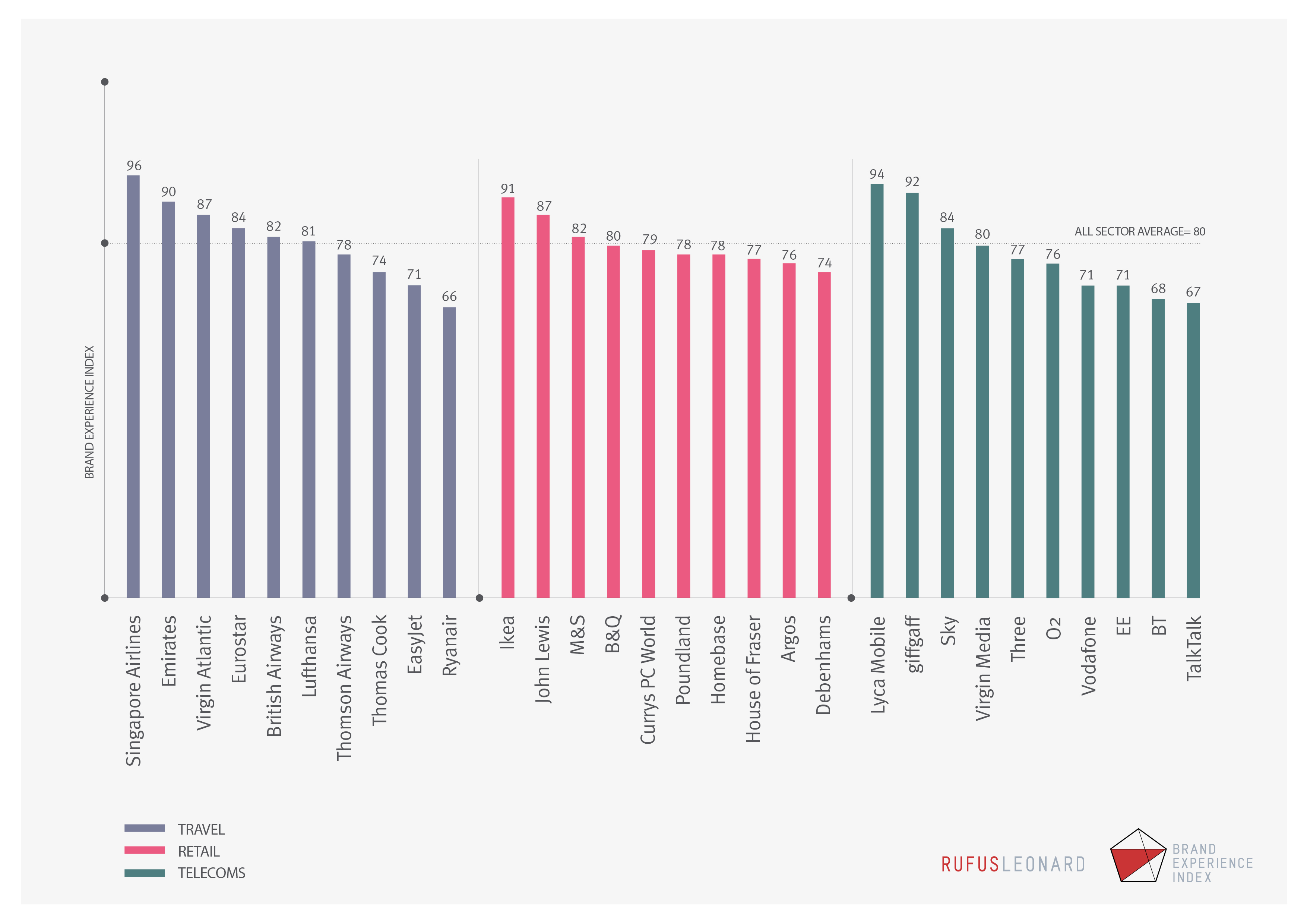People’s direct experience of a brand has a significant impact on customer loyalty, according to the new Brand Experience Index from London-based experiential agency Rufus Leonard.
Among the brands included in the survey, Singapore Airlines (96), Lycamobile (94), and IKEA (91) have the highest Brand Experience Index (BXi) in their relative sectors, based on the BXi score of a maximum 140, with the average score being 80.
Rufus Leonard developed the new research to track the impact of a brand’s experience on customer loyalty, on why people choose and remain with brands, based on a survey of UK people. The survey measures five facets of experience that consumers have when interacting with a brand (‘sense’, ‘feel’, ‘think’, ‘do’ and ‘connect’) to compare how well brands are engaging them.
Research focuses on people’s views of brands in three sectors that provide contrasting experiences: travel, retail, and telecoms. Within each sector Rufus Leonard selected 10 brands, five established brands and five challenger brands, based on longevity and revenue.
Rufus Leonard also asked people about their loyalty to the brands with questions about future purchase preference and likelihood to recommend (Net Promoter Score). This showed that there is a significant correlation between a strong BXi score and brand loyalty. Every 10 BXi points gives a brand double-digit growth in future preference, loyalty and advocacy (NPS). As a result, each BXi point correlates to a large bottom-line business value, for example £75 million ($A130 million) in the case of Ryanair.
Singapore Airlines scores the highest across all sectors while Ryanair (66) and Talk Talk (67) are the two worst performing brands. Overall, the airline sector brands perform best, Emirates (90) and Virgin Atlantic (87) in particular.
The survey shows that retailers have an issue around creating an experience that builds loyalty to the brand. Some 70 per cent of the retail brands surveyed scored below the ‘All Sector Average’.
However, IKEA (4th overall) and John Lewis (7th) bucked the retail trend by both well outperforming the overall average. Marks & Spencer, another established retailer, also scores above average.
Telecoms however is the worst performing sector with an average BXi score of 78 (versus Travel at 81 and Retail at 80). Here it was the small challenger brands Lycamobile (2nd overall) and giffgaff (3rd overall), outperforming the rest of the telecoms sector.
Laurence Parkes, chief strategy officer at Rufus Leonard, said: “We were inspired by a report that came out earlier in the year from the Chartered Institute of Marketing that showed how hard marketers are finding it to embed brand thinking across their businesses to deliver meaningful brand experience. Crucially less than half of marketers felt equipped to measure how the quality of their brand experience impacts business value.
The Brand Experience Index shows clearly that good brand experience can directly impact customer loyalty and hence business value. It builds on the work by others in measuring customer experience but shows the value of putting brand thinking at the heart of this.”









